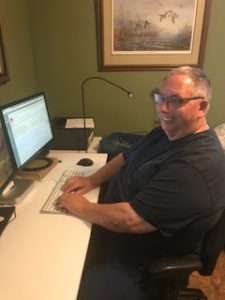 Four months after I retired, I got an email from a friend at my former job asking for assistance on a technical thing. Arrangements were made, and I stopped in to help. It was nice to be asked and I was happy to try. In the end, I had lost my admin privileges upon retirement, so advice is all I could to offer.
Four months after I retired, I got an email from a friend at my former job asking for assistance on a technical thing. Arrangements were made, and I stopped in to help. It was nice to be asked and I was happy to try. In the end, I had lost my admin privileges upon retirement, so advice is all I could to offer.
The surroundings felt familiar and everyone was friendly and nice. However, I was only there a couple minutes when the little voice in my head quietly whispered the observation: I no longer feel a sense of belonging here. I looked around wondering what had changed. What was different?
The interconnected sense of belonging I felt at my former job was gone. I no longer wanted to immerse myself into the mix of life in that organization. The “who said what, to whom” reality of life in the organization is irrelevant to me. I care about the mission of the organization. I care about the people in the organization. But my desire to belong there was gone.
They did nothing to cause it, but my former job and I are on different paths moving in different directions. What has changed is me.
This is paraphrased from a Wikipedia article:
“Whether it is family, friends, co-workers, a religion, or something else, people tend to have an ‘inherent’ desire to belong and be an important part of something greater than themselves. The need to belong is the need to give and receive attention to and from others”.
Based on what I learned getting my psychology degree (U of MN – BA Psychology 1975) and a lifetime of reading and experience, the need for feeling a sense of belonging is a basic part of human nature and a very real need of all humans.
We humans are a communal species. There are serious consequences when humans do not feel they belong. Being a lone wolf is not good for our survival. Seriously, if you feel truly alone and like you do not belong, please seek help. Not kidding. Take it seriously. You do belong, let someone help you see it.
However, realities need to be faced. I no longer felt the “we are all in this together” feeling I felt on every project team of which I was a member. I no longer felt part of the solution because nobody copies me on emails so that we can together solve an unusual issue. The camaraderie formed by jointly enduring endless project meetings is in my past. I no longer share an eye-roll reaction to the corny weekly emails from the commissioner’s office urging us to do our best.
The emails and meetings gave me a sense of belonging. I was part of an interdependent team of people who worked to accomplish a mission. Our job bound us together and it felt good working together for the common good. The feeling of belonging I had with my job is gone but I still feel I belong in many other aspects of my life. Just not at my former job.
My life is not empty because I no longer work for a living. I have a marriage. I have friends. I have family. I talk to neighbors and relatives. I frequently rollerblade with my sister. I attend classes and frequently get emails from the University reminding me I am part of their family. I have more Facebook friends from high school than actual friends I had in high school.
The need to belong is universal. All people throughout history across every culture have the need to belong. It is not a weakness of character. It is not a gender thing. It is not a generational thing. It is not a national origin thing. It is not an occupational thing. We all need to belong throughout our entire lives no matter what our individual circumstances. It is a human thing.
The need to belong is a very powerful motivator. Otherwise, honest, intelligent well raised teen agers have been known to fib to their parents in order to sustain their sense of belonging with their friends. Some people will jump up and down in public screaming just to show they belong to group called fans of the home team. People mourn the loss of a group member and celebrate when new members are added.
The need to belong guides many aspects of our lives. How we dress. Who we associate with. How we behave. It is a big part of our day to day life. Politicians, advertisers, coaches, religious leaders, moms, dads, siblings, bosses, and the like all use our need to belong to motivate us into doing or not doing this or that activity. We do the same to others.
Belongingness is a mutual thing. There is no group of one. “We” are a group. I or you, alone, do not constitute a group. Our group, not their group. I affect the group; the group also affects me. The need to belong is the need to give and receive attention to and from others. Belongingness is a messy set of complex interconnecting relationships between real people who are interconnected.
A movie star is not a movie star unless others consider the movie star to be a movie star. I can say I belong to a group called super smart geniuses. I might in fact be a super smart genius however, I do not belong to the group unless other super smart geniuses interact with me and I with them. Curiously I am still waiting to interact with other super smart geniuses, so I guess do not belong to that group either.
Over time, things change. The need to feel a sense of belonging is always there. What changes, for all sorts of reasons, are the groups we share the sense of belonging with.
What we perceive often depends on how close we look.
Scaleandperception.com
